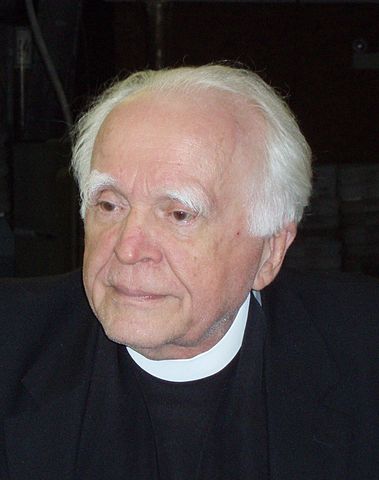Yesterday Rob Sheldon wrote to us on the “epicycles” of today’s cosmology. (Copernicus used about 27 epicycles 14 centuries after Ptolemy. Since the half-life of an epicycle solution is decreasing rapidly, we may reach 27 within 10 yrs.)
That reminded me (O’Leary for News) about something I’d been meaning to get around to asking him. Some Christian ministries see Big Bang theory as a threat and others use it in their apologetics. Is either approach a sound idea? Science is an ever-changing, many-splendored thing. What helps or hurts a given argument could change over time, but what if the message is supposed to be for all time? Over to Sheldon:

I along with Stanley Jaki stand somewhere between Hugh Ross and say, Creation Research Institute. That is, I don’t mind the idea that the universe began 13.7 billion years ago in a big explosion. It does a nice job explaining the data.
But the data look very finely tuned–as Hugh Ross would agree. So the secular academia have added all these modifications to the Big Bang to emphasize non-creation, non-fine-tuning, non-design, which strictly speaking, aren’t a part of the Big Bang model, they are add-ons. Features like inflation, dark energy, dark matter exotic particles, (I like non-exotic dark matter), black-holes, multiverses, worm holes, and yes, even gravity waves.
Some of them may turn out to be correct, others cannot be correct, but all of them have been hyped to death as if they were respectable physics (which they are not, they are hypotheses, some very speculative). The more I look into them, the more hype I see, and it deeply troubles me.
Hugh Ross came out of the astronomy community–discovering God while a postdoc at CalTech–and he still deeply respects the astronomy and astrophysics (judging from his newsletters). I’m a bit younger and a lot more jaded than Hugh, so the hype, the one-sided presentations, and even the persecution of alternative views make me disbelieve the consensus view almost on principle.
The late Stanley Jaki was a physicist and philosopher who felt exactly the same way as I do, writing an important book (for me anyway), God and the Cosmologists, where he documents this twisting of the Big Bang theory to support a secular philosophy.
If I am not a young earth creationist, it is not because I believe the physics more, it is because I believe the Hebrew more. The YEC treatment really needs to stop quoting Augustine (who couldn’t read Hebrew) or Calvin and start doing their own exegesis. Three years ago when my father fell ill, I decided to drop everything and work on the Genesis exegesis to see where the conflict lay.
In addition to the truly fascinating material on the location of Eden and the time of the Flood, I was surprised to find Genesis confirms some aspects of the Big Bang (13 billion years, recombination era, galaxy building) while undermining other aspects (exotic dark matter, probably dark energy). I wrote up a 43 page article for an upcoming World Scientific Pub. anthology on this, (which was brutally shortened to 20 pages by eliminating half the days) which attempts to show that Genesis is a technical document and requires a technical exegesis with at least the same amount of time dedicated to Hebrew as to the astrophysics.
So is the Big Bang a significant theory? It is for secularists, who have no other origination story. The Epicurean version had an eternal universe, but that is pretty much moribund today, so they are stuck with BB, as Robert Jastrow’s book documents. Like Hugh Ross, I think this is a great time to show the similarity with Genesis. But then like Stanley Jaki, I point out where the secular myth goes off the rails, purely because they do not want to agree with Genesis.
And then finally, I want to show how Genesis puts us back on the rails again, by pointing to the elements of design in both Big Bang and the history of life on this planet (evolution).
Well, that might motivate more people to study Hebrew.
See also: Big Bang exterminator wanted, will train
Follow UD News at Twitter!
